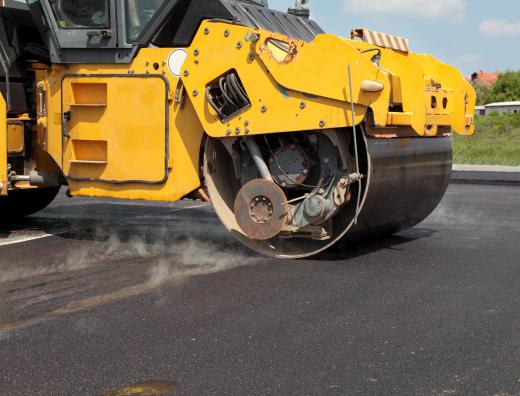A road roller is a piece of equipment primarily used in the construction of roads. It causes materials such as asphalt, gravel, and dirt to become uniformly compressed and level. Typically, a road roller is comprised of a roller body and at least one metal drum. Sometimes, a road roller may have two or even three drums, depending on the project. In most cases, a person drives the roller, but there are some basic models wherein a person pushes the roller body to create a level surface.
Although the road roller may seem like a modern piece of equipment, it has been around for centuries. Although it was first used under horse power, the horses were eventually replaced with steam power in 1860. By the 1900s, the steam-powered roller was replaced by rollers that were powered by other sources, such as diesel.

Generally, a road roller works when the weight of the drum that is attached to the roller body causes materials to compress and become compact. The weight of the drum may vary significantly. The drum of a manual road roller may only weigh 100 pounds (about 45.4 kg). The manual road roller would not be used to construct roads, but it often is used for paved walkways or other small projects. Some industrial road rollers, used to construct roads and highways, weigh more than 25 short tons (about 22,679 kg).

Typically, the main weight of a road roller comes from the drum that is attached to the roller body. The weight of the drum can be increased, in many models, by adding water to it. The water is heavy, but it can be drained from the drum when the construction project is finished. Then, as a result of its lighter weight, it can be transported more easily.

In many cases, several different road rollers may be used for a single construction project. For example, a roller with a single drum and tires may be used initially. Then, once the construction area becomes level, a roller with metal drums, instead of tires, may be used to make the construction area as compact as possible.
There are many different models of road rollers, and each offers something different. For example, some rollers emit a water-based lubricant. The lubricant works to prevent materials such as dirt and asphalt from sticking to the drum. Some models have vibration systems that work to make the asphalt or other material even more compact.
